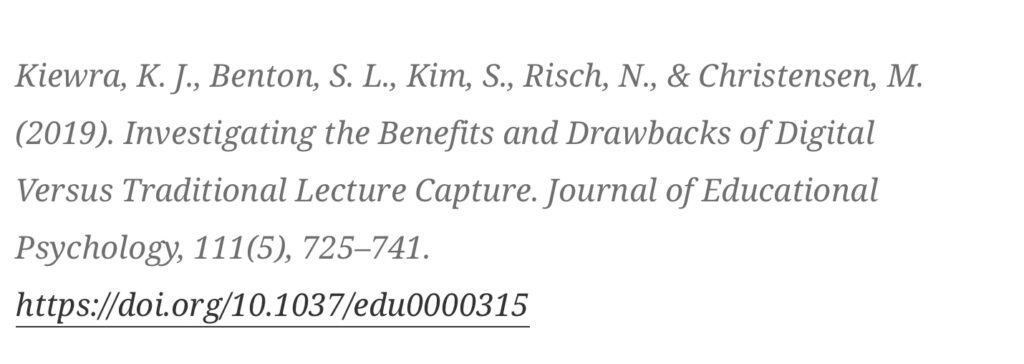One of the strategies I have been recommending for educators concerned about the way students are using ChatGPT is to ask students to include references in their reports. My daughter who is working on her dissertation and grant applications told me that ChatGPT will fabricate references.
I encountered an example of this problem. I write frequently about digital note-taking and try to couch what I discuss in the research I have read. Recently in evaluating ChatGPT I asked a question about this topic and I asked for references. One of the citations GPT added to the content it generated I did not recognize and I then attempted to download it from my university library. It does not exist and the page numbers included do not match the range covered by the issue designated in the citation.

It is not that uncommon to find a citation that is in error. We all can make mistakes when we enter citation information in a document we create. Usually, I can identify the problem by entering the title in Google Scholar. This is not the case with this example. Kiewra is well known for his research on this topic. Benton and Kiewra often publish together. So, the citation might seem real to those familiar with this topic. It is not.
https://doi.org/10.1037/edu0000315 does exist, but if you use this link you will see it leads to a completely unrelated resource.
![]()

You must be logged in to post a comment.